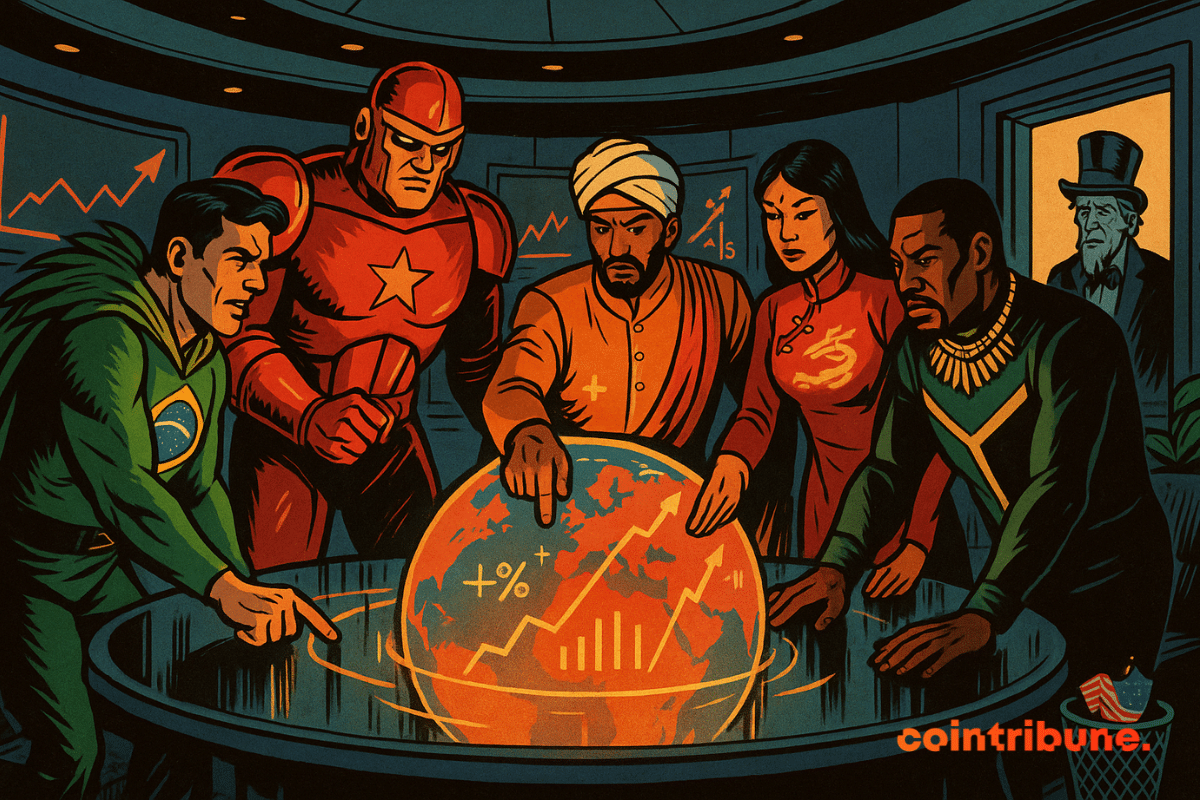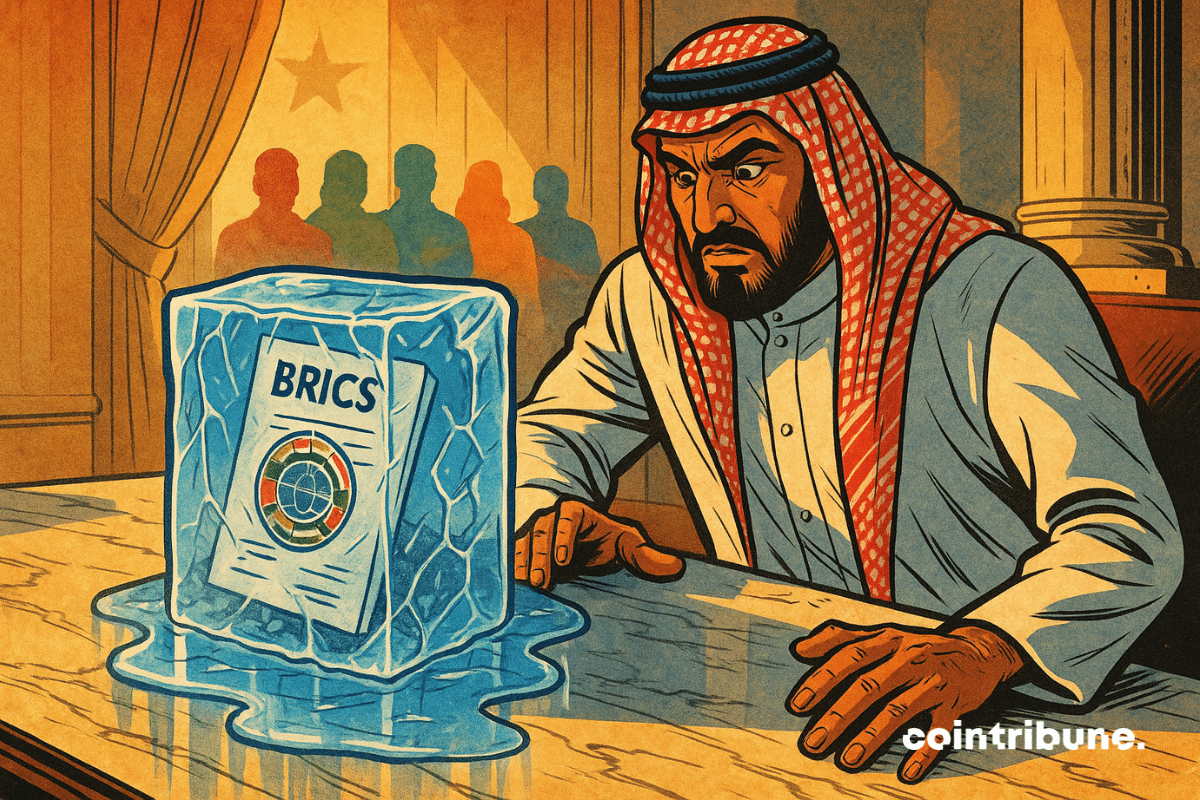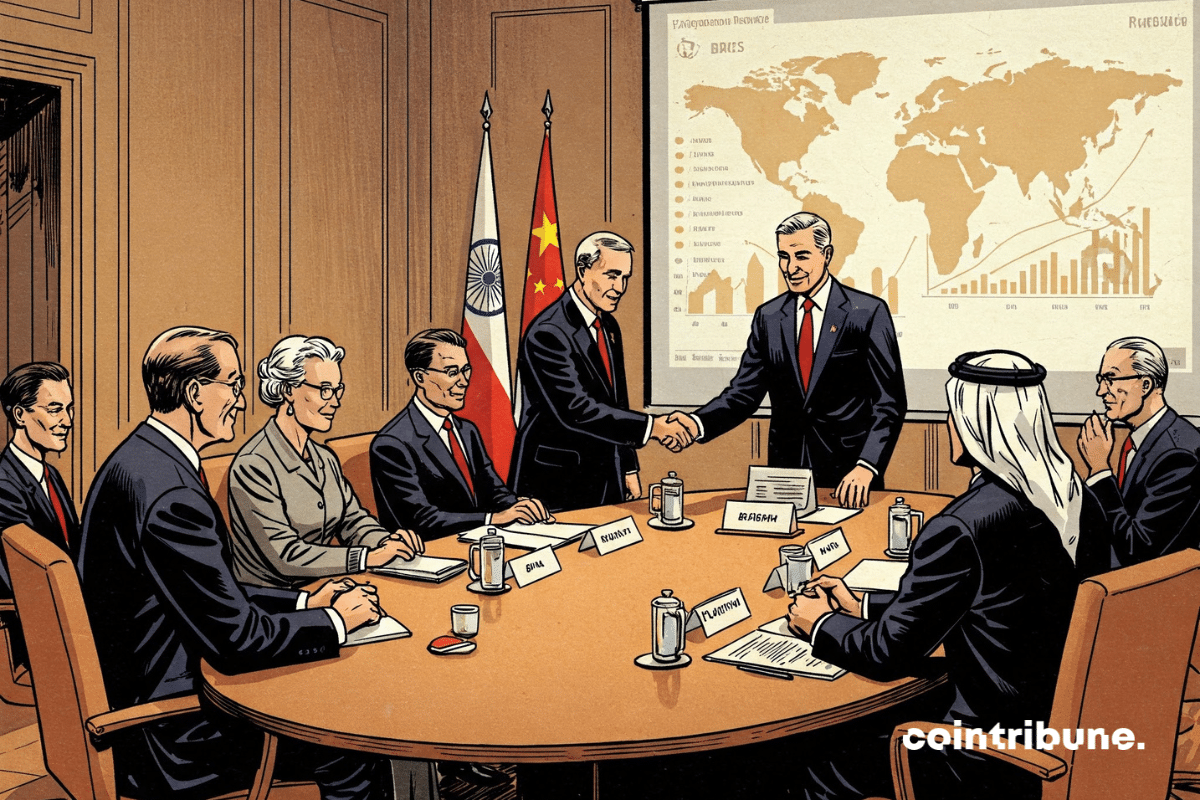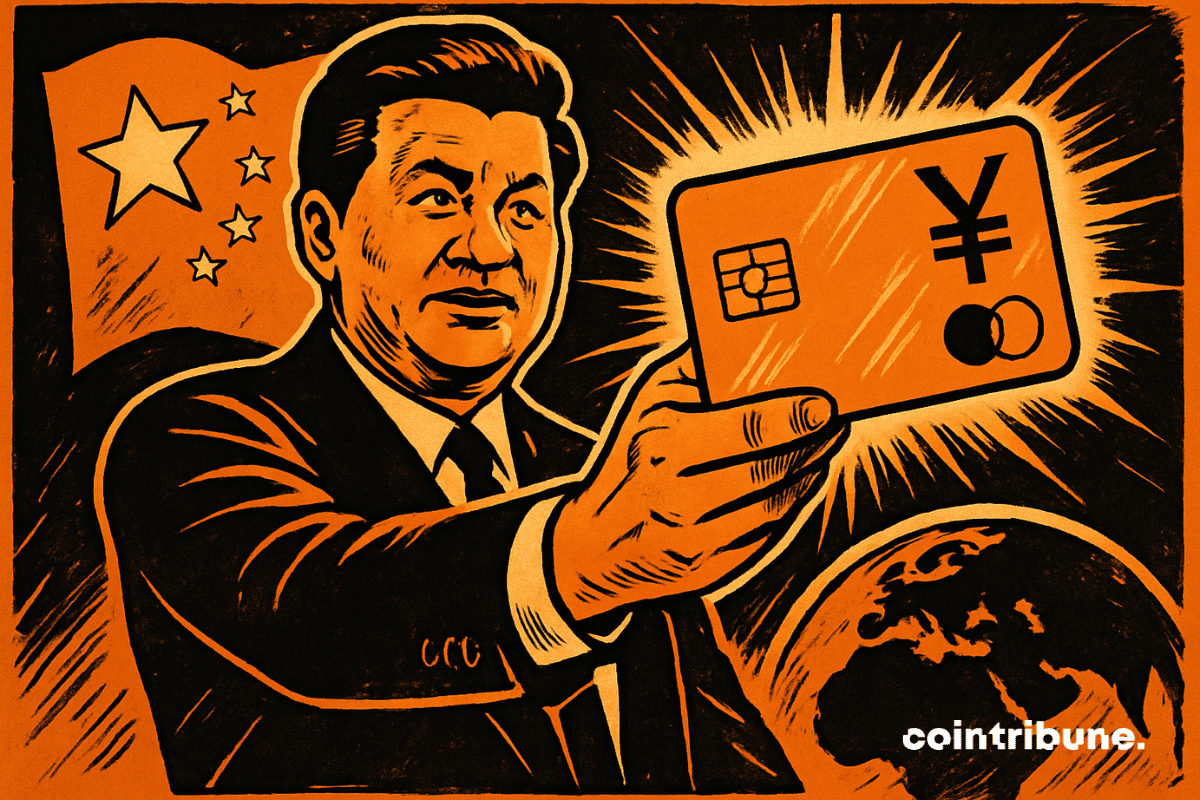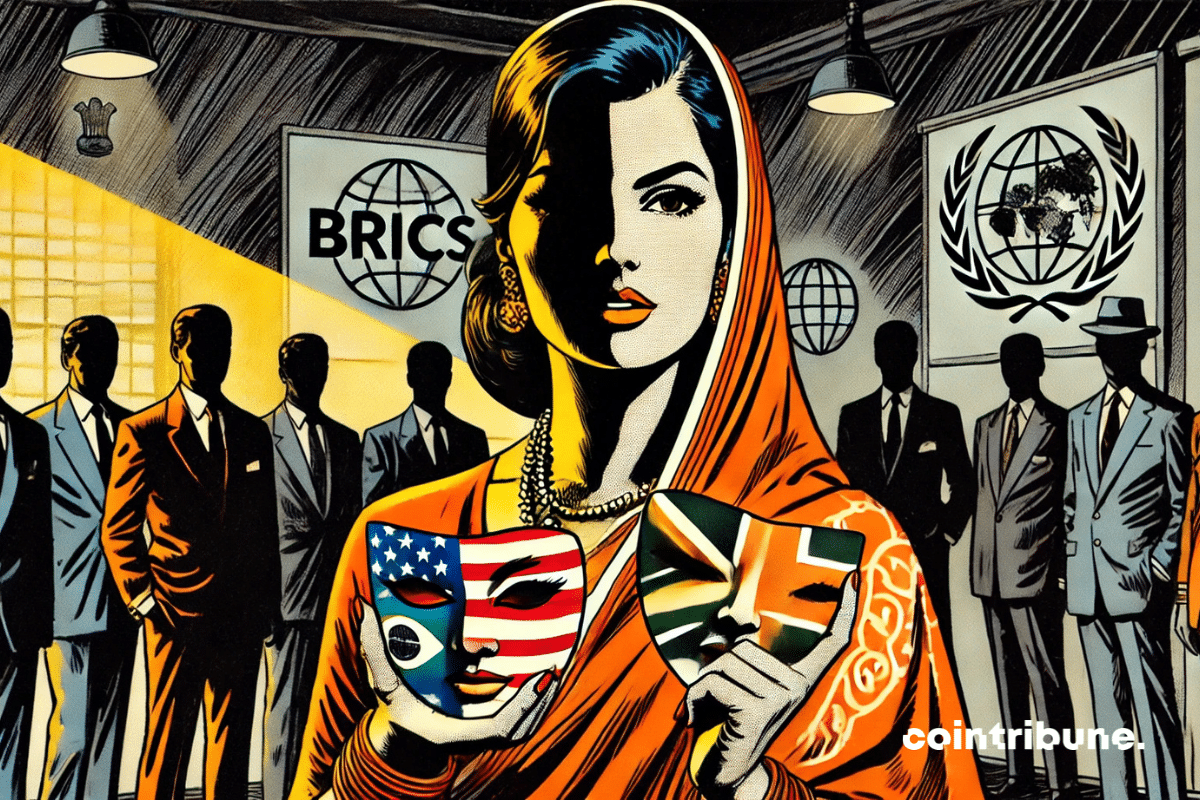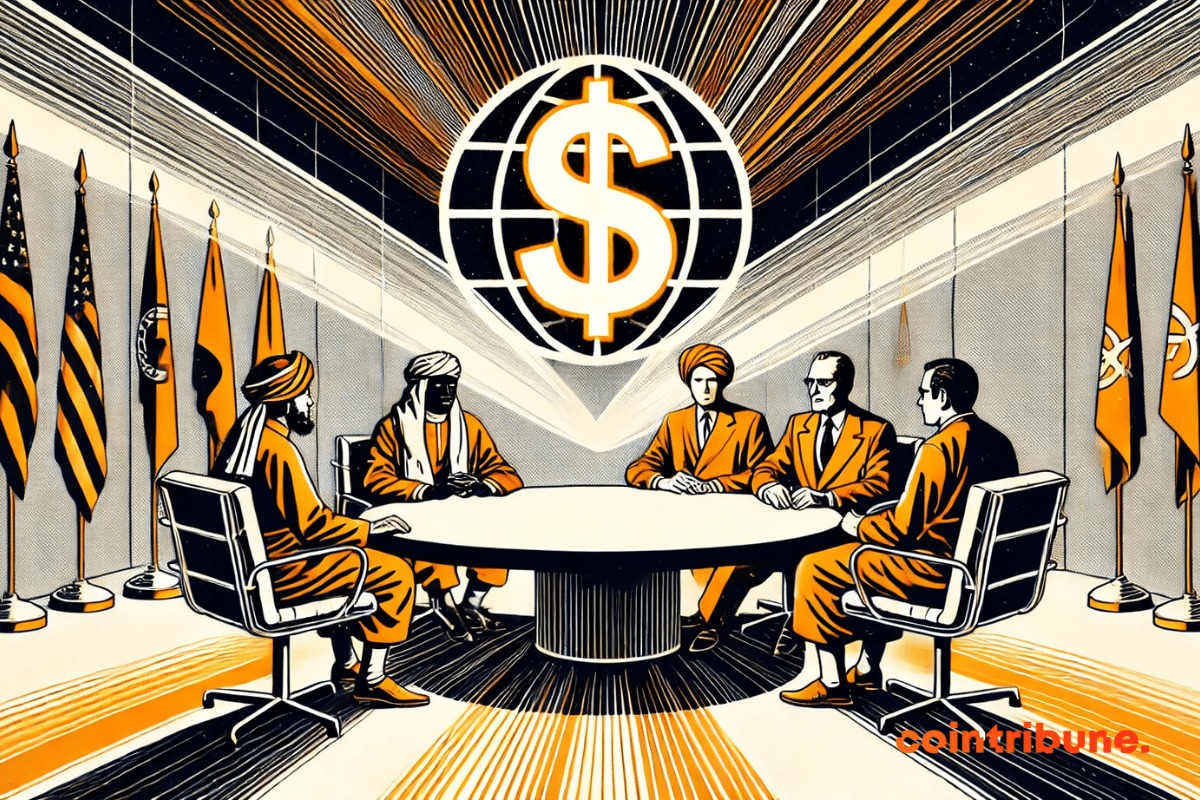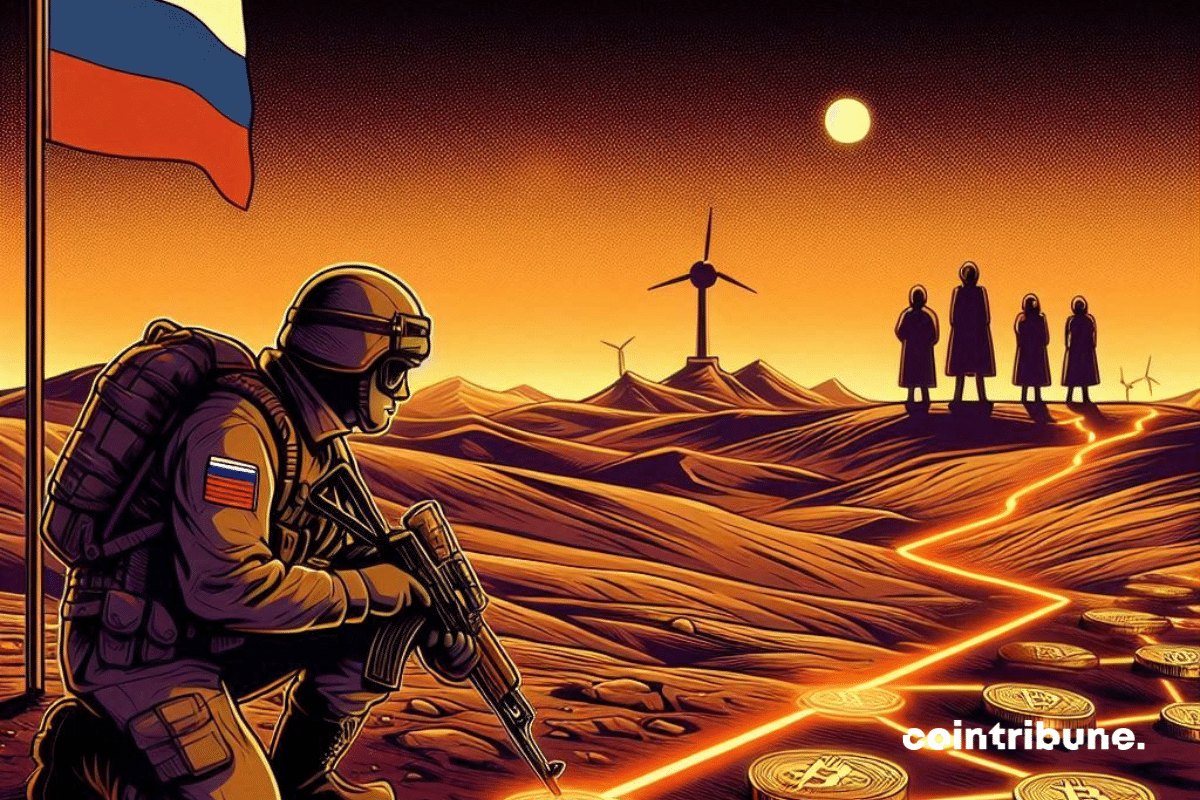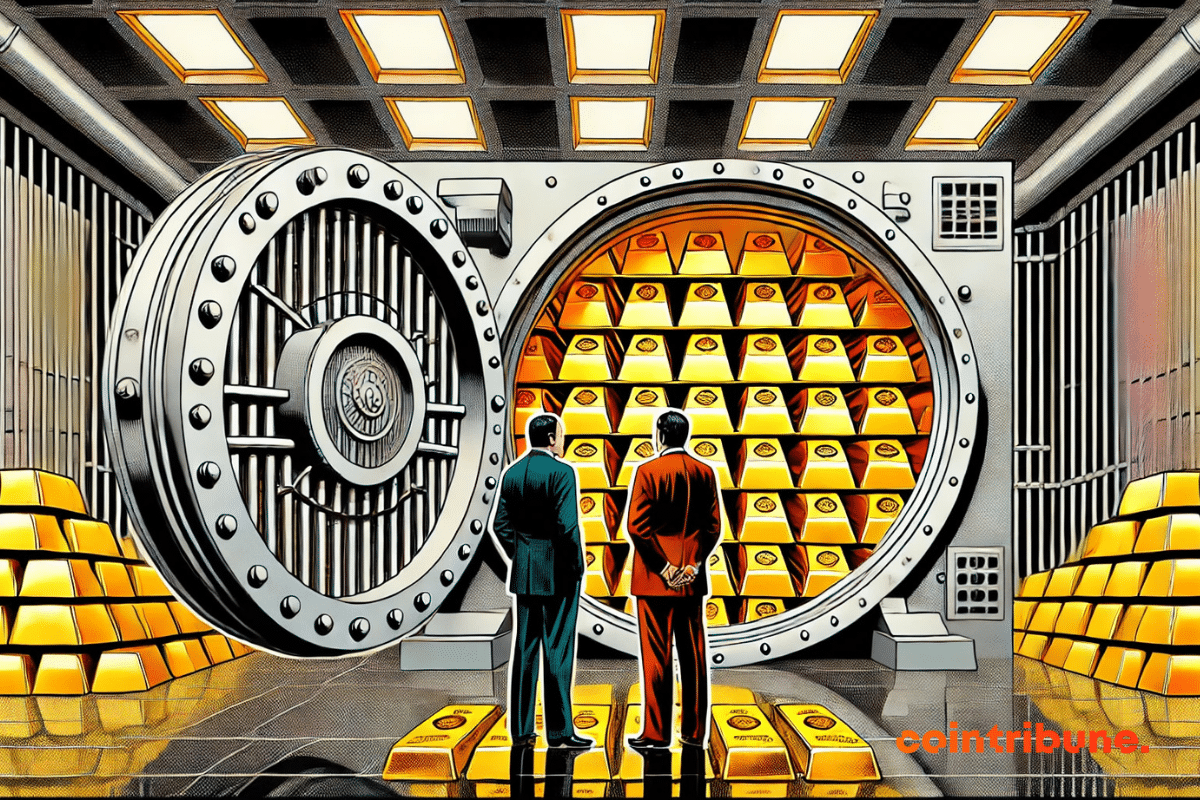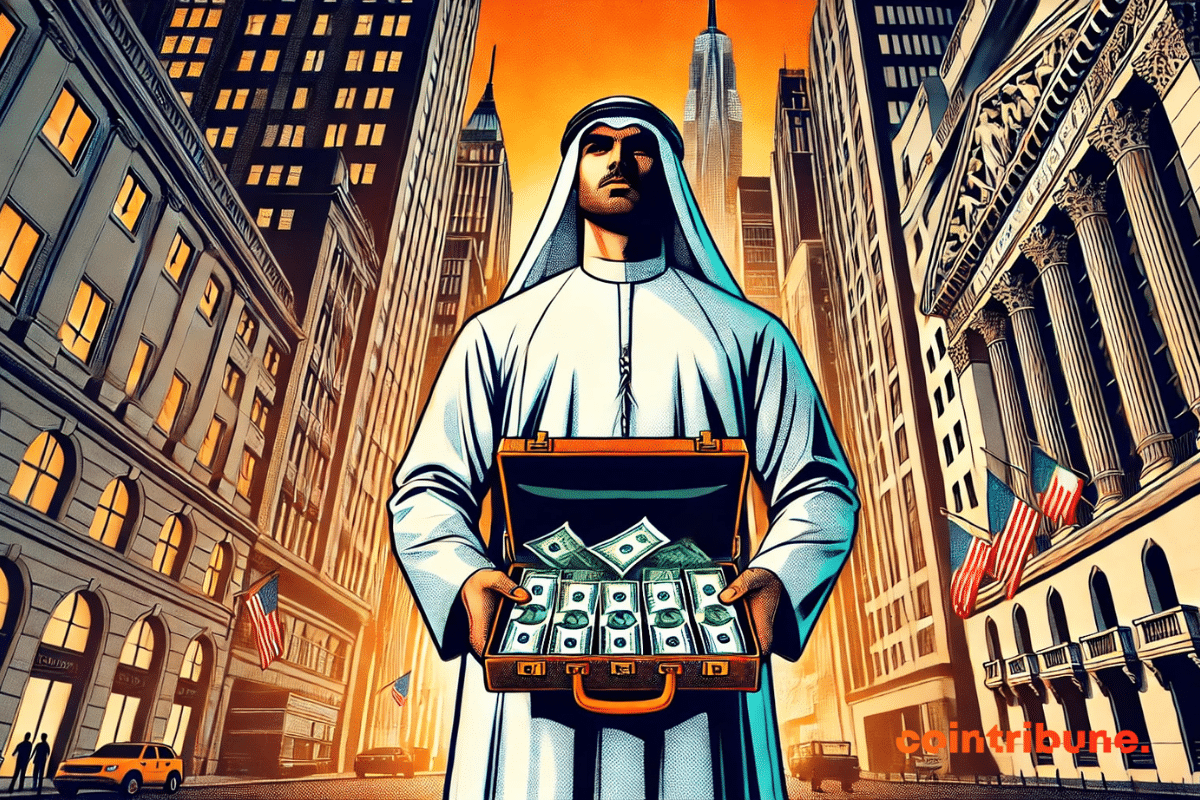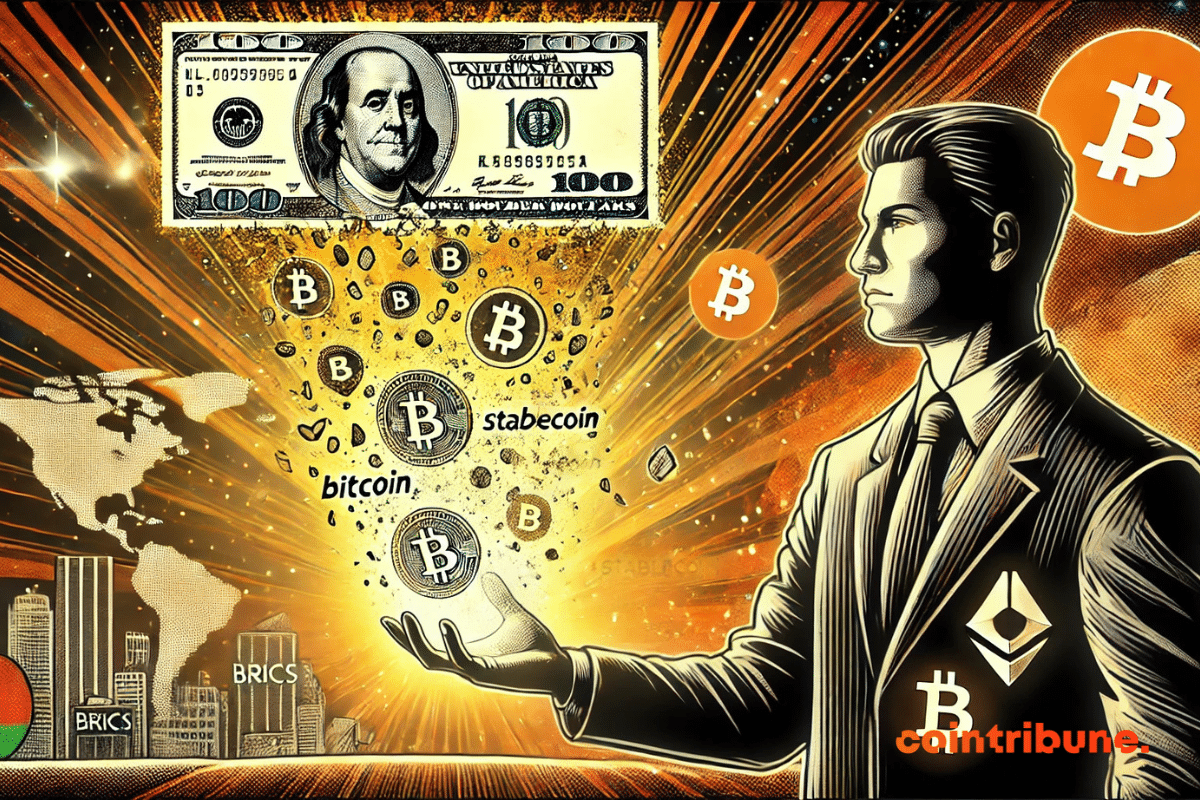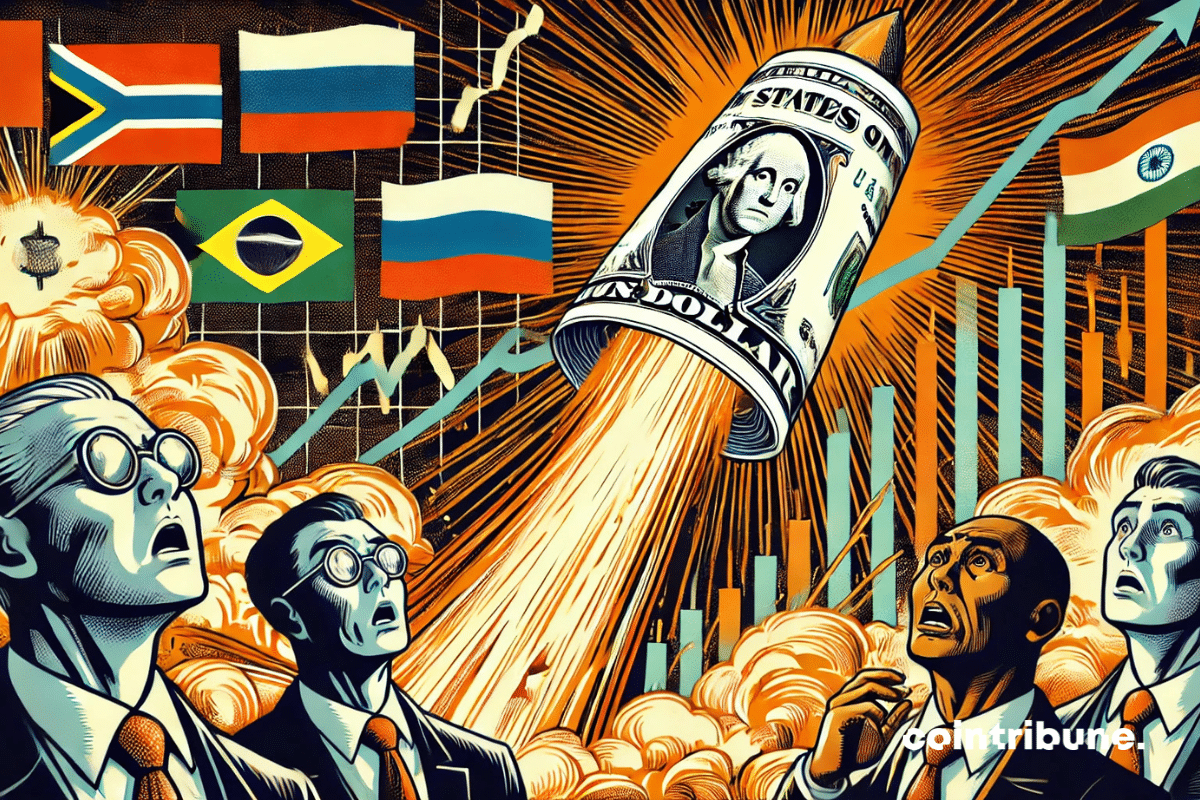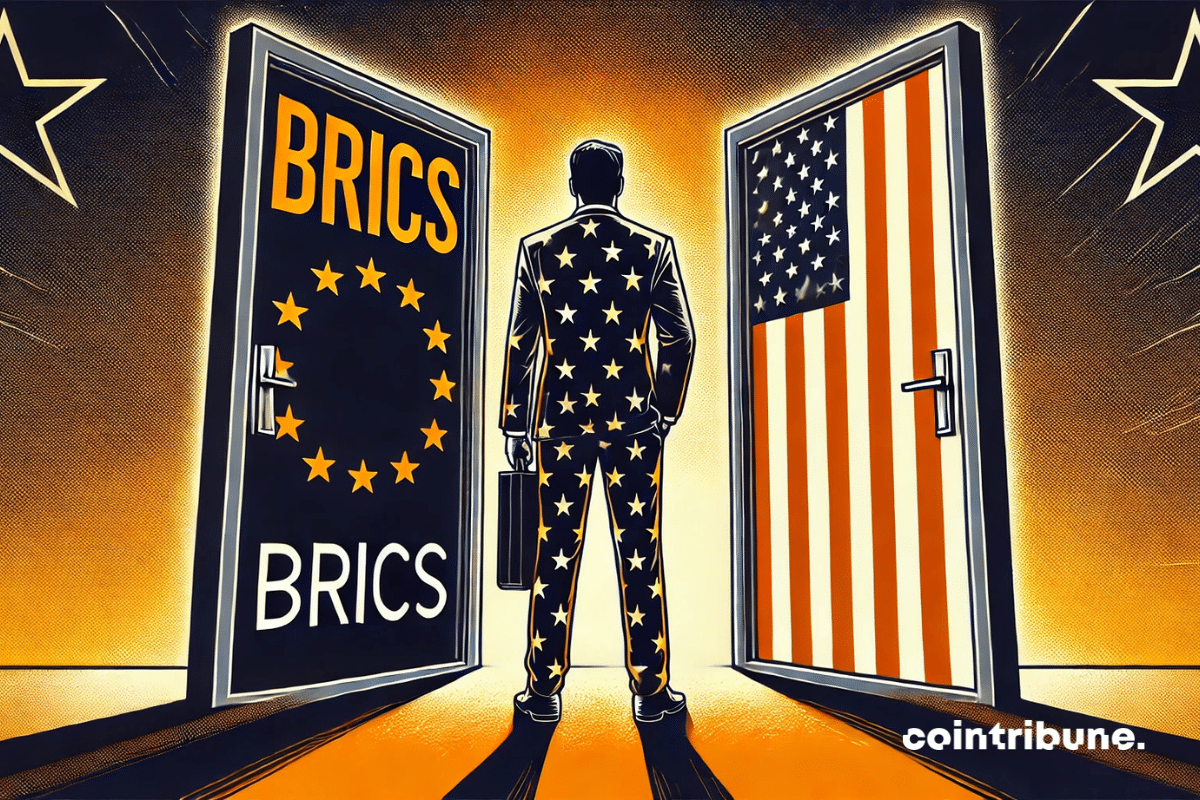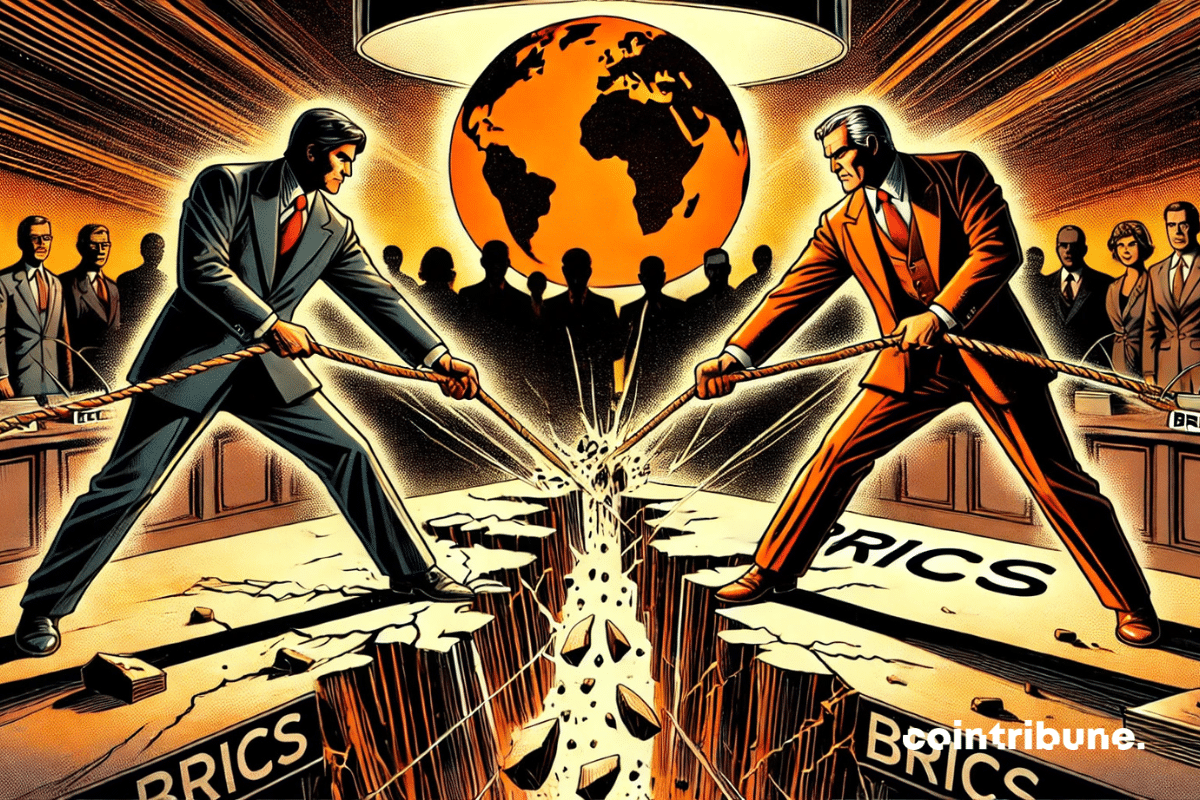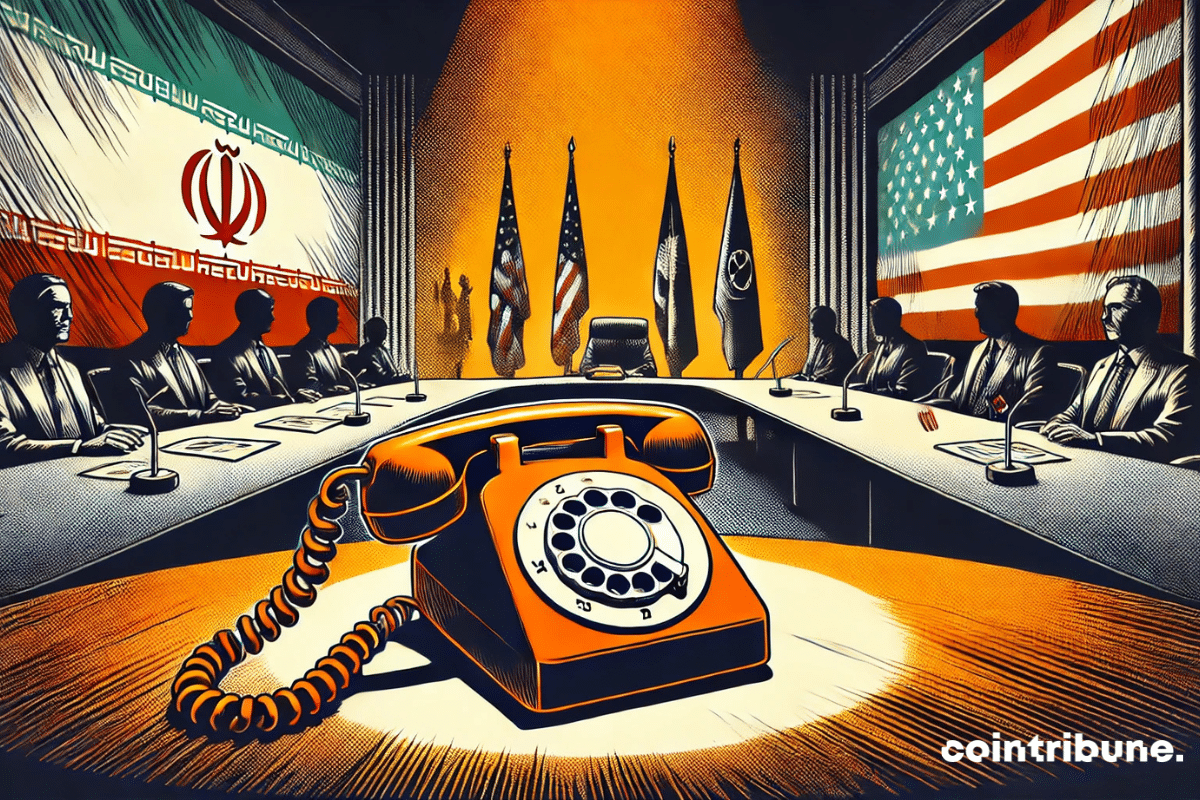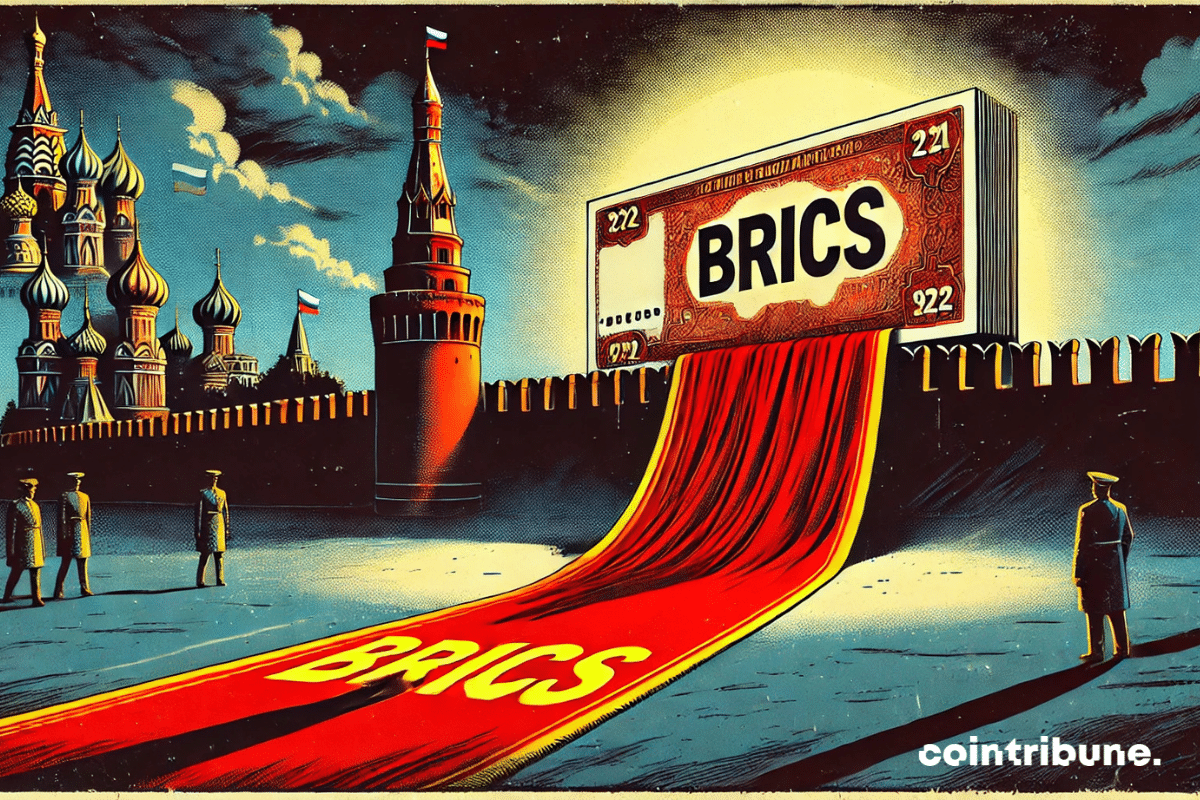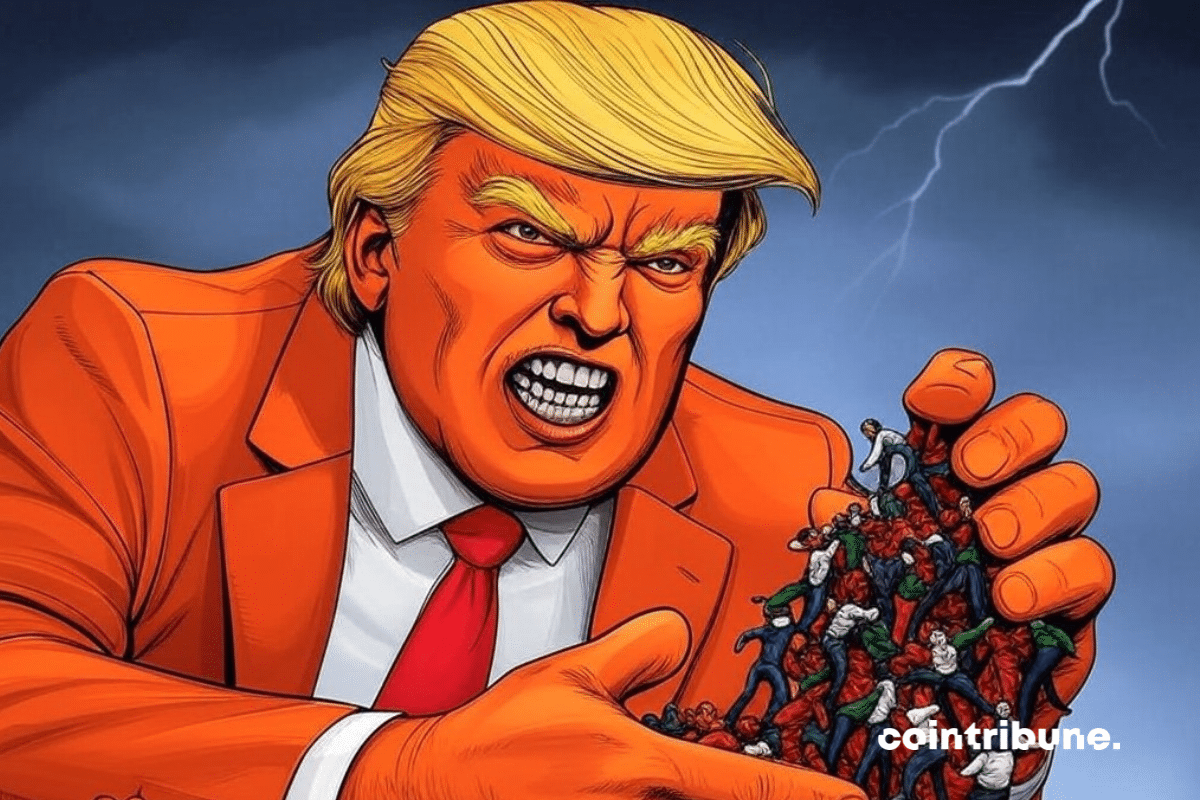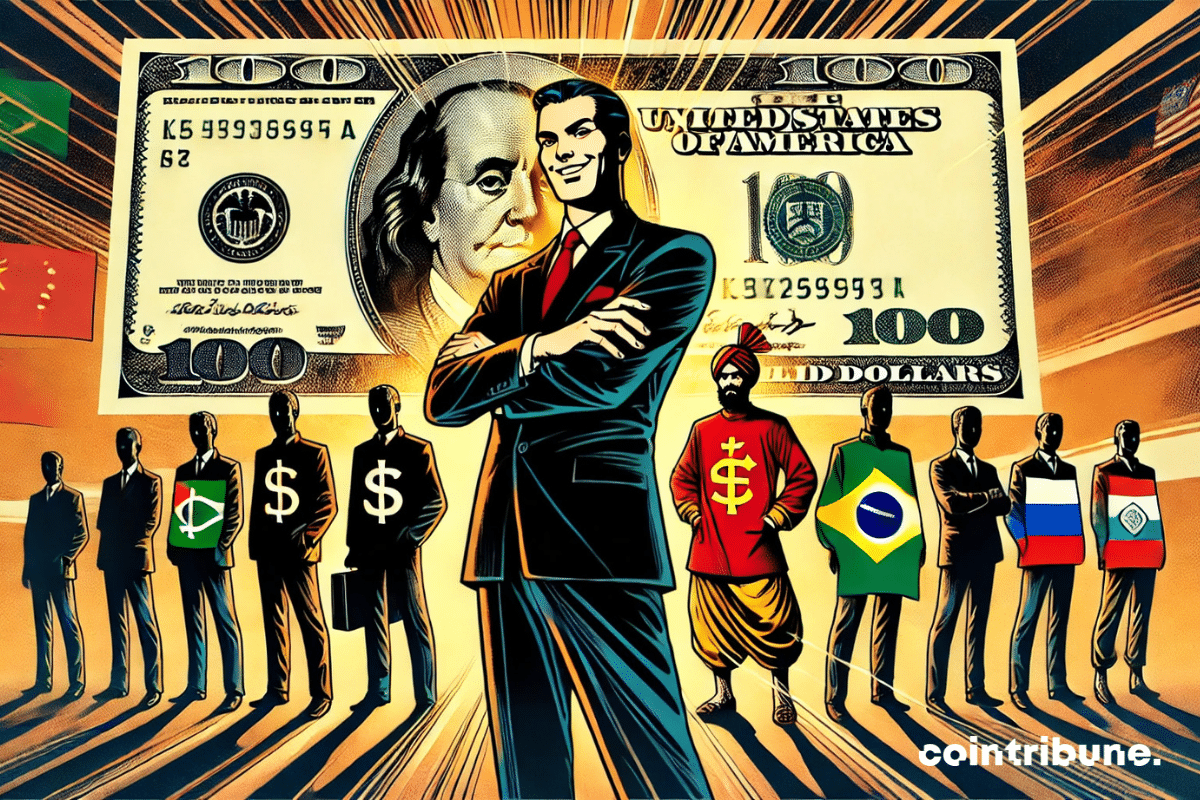For a long time perceived as followers, the BRICS are now at the forefront of global growth. According to the latest forecasts from the IMF, these emerging powers will show an economic momentum in 2025 that is significantly higher than that of the United States. This quantitative shift is becoming strategic: the rise of the BRICS is no longer a trend; it is a fact. Their collective performance is redefining the balance of power and necessitating a re-examination of geo-economic equilibria.
BRICS
In a world where geopolitical fault lines are shifting rapidly, Saudi Arabia plays a delicate tune between two rival blocs. Solicited by the BRICS but still closely tied to the United States, Riyadh is biding its time, suspending its official membership despite signals of openness. While Beijing lures with its economic promises and Washington threatens with tariffs, the kingdom is preserving its options. Does this tactical ambiguity mask a pre-established strategic direction or is it preparing for a major rebalancing on the global chessboard?
The global monetary architecture is shaking on its foundations. By reducing the share of the dollar in their exchanges to 33%, the BRICS are signaling a historic break. Their trade now largely relies on their own currencies. Behind this shift lies a deliberate strategy to fragment a system dominated by the greenback. This is no longer an intention; it is a movement underway. And it is reshaping the balances of a financial order that has until now been under the influence of Washington.
While economic sanctions aimed to suffocate Moscow, Russia recorded a growth of 4.1% in 2023. This figure, confirmed by Russian authorities, shakes the certainties of Washington and its allies. In a climate of war in Ukraine and a reshaping of monetary alliances, the resurgence of the Russian economy reveals an effective circumvention strategy, supported by the BRICS. This data raises questions about the effectiveness of Western sanctions and reshuffles the cards in the geoeconomic game.
As international monetary tensions intensify, China is ramping up its offensive against the dominance of the dollar. Beijing is formalizing the launch of a strategic plan to impose its own international payment system. This initiative marks a major turning point in the redefinition of global financial flows, reinforcing China's ambition for a multipolar economic order. By directly targeting traditional networks dominated by the West, this maneuver is now capturing the attention of markets, governments, and major financial institutions.
Between Washington and the BRICS, India is performing a balancing act. Officially tethered to the dollar, it nonetheless allows favorable signals towards monetary alternatives to leak through. In a context of geopolitical reconfiguration where the American currency crystallizes tensions, New Delhi's ambivalent stance intrigues as much as it worries. Between overt loyalty and discreet strategies, India asserts itself as a key player in the global monetary showdown.
Russia, an influential member of the BRICS bloc, has just crossed a historic monetary milestone: in February, more than half of its imports were settled in rubles. This strategic advancement, confirmed by the Central Bank, is part of a clear break with the dollar-dominated system. As tensions with the West escalate, Moscow is redirecting its trade towards partners deemed "friendly," thus redefining global financial balances and accelerating its trajectory towards strengthened economic autonomy.
While the United States tightens its tariff arsenal, the rest of the world is organizing itself. Thus, the BRICS bloc attracts economies seeking strategic independence. Breaking away from the established monetary order, this alliance is reshaping trade routes and weakening the dollar's dominance. A silent but structural shift is underway.
As geopolitical tensions reshape global balances, the BRICS are accelerating the establishment of their own payment network. Led by Russia, this infrastructure aims to free itself from SWIFT and open a financial pathway outside of Western control. The announcement of its accessibility to non-member countries marks a strategic rupture. Beyond being a regional tool, BRICS Pay becomes a lever of global influence and a strong signal in favor of a multipolar monetary order.
In a geopolitical context undergoing a major reshuffle, two significant initiatives are shaking the hegemony of the dollar. Brazil and China are making a strategic shift by favoring their national currencies for bilateral exchanges. For their part, Russia and Iran are announcing the launch of a new common currency to circumvent Western sanctions. These distinct yet converging movements illustrate a shared desire among influential BRICS members: to build a financial system that is less dependent on the greenback and to assert monetary sovereignty in the face of external pressures.
The dominance of the US dollar in international trade and global reserves has never been so challenged. Indeed, Deutsche Bank is sounding the alarm on a growing phenomenon: dedollarization among the allies of the United States. In the face of geopolitical tensions and financial sanctions, several nations are seeking to reduce their dependence on the greenback. If this trend accelerates, the impact could be considerable, drastically altering the global monetary balance and redefining the power dynamics within the international financial system.
And if independence no longer came through weapons, but through blocks of code? The BRICS dream of sovereignty in cryptocurrencies, with Siluanov as a digital scout.
Gold is no longer just a safe haven. It has become an instrument of economic power. In 2024, the BRICS have massively accumulated the precious metal, anticipating a tightening of American trade policies. This bet is proving to be worthwhile, as the new tariffs announced by Donald Trump triggered a historic surge in gold prices. As the trade war intensifies, the yellow metal is asserting itself as the monetary weapon of emerging powers against the dominance of the dollar.
The United Arab Emirates, now members of the BRICS, will invest 1.4 trillion dollars in the United States over ten years. Announced after a meeting with Donald Trump, this maneuver reshapes global balances. Between technological ambition, diplomatic calculation, and projection of influence, Abu Dhabi is shaking up the lines of a world now structured by variable geometry economic alliances.
In his recent intervention, Subrahmanyam Jaishankar sought to dispel any ambiguity about India's position regarding the dollar: "there is no policy on our part aimed at replacing the dollar. At the end of the day, the dollar as a reserve currency is a source of international economic stability."
The USA-Ukraine summit was recently held in Riyadh and resulted in more ambitious ceasefire proposals than expected. "The ball is now in Russia's court" has become the American talking point on this issue. Meanwhile, Europe appears to be accelerating its military reassertion in an increasingly tense geopolitical context.
For decades, the US dollar has dominated international trade and has established itself as an essential global reserve. However, this absolute reign is now challenged by the BRICS bloc. As a result, geopolitical tensions and the rise of cryptocurrencies are pushing several countries to seek alternatives to the greenback. Bitcoin and stablecoins are emerging as instruments capable of circumventing the supremacy of the dollar, but paradoxically, they could also reinforce its influence.
In the shadow of the economic restrictions imposed by the West, Moscow is charting a new path for its energy trade. In the face of exclusion from the international financial system, Russia has found an alternative solution: the use of Bitcoin (BTC) and Tether (USDt) to bypass sanctions and ensure the continuity of its oil exports.
The global economic order is trembling under the impact of protectionist decisions from the United States. While the BRICS aim to reduce their dependence on the dollar, a major upheaval could be on the horizon. The resurgence of American tariffs could fuel a rise in the greenback, threatening to weaken emerging economies and hinder their efforts for dollarization. This potential rise of the dollar, far from being trivial, could mark a turning point for global monetary balance.
The economic confrontation between the United States and China is taking on a new dimension. Indeed, far from being limited to traditional exchanges, this trade war is now affecting the crypto market. Thus, between Donald Trump's announcement regarding the creation of a national strategic reserve of cryptocurrencies and the Chinese response to American economic sanctions, investors are witnessing market movements of rare intensity. The question now arises: is this instability temporary or should we expect a lasting impact?
The economic clash between the Global South and the United States is taking a new turn, with Brazil emerging as a key player in this monetary battle. By opposing the supremacy of the US dollar, the Latin American country is redefining global financial balances and questioning the traditional architecture of international trade. This decision is part of a process of dedollarization, which is gaining momentum within the BRICS and could deeply modify international economic circuits.
The global economy is evolving under the pressure of increasing trade tensions. As the United States imposes new tariffs, Europe finds itself facing a strategic dilemma. Balancing its traditional alliances and diversifying its economic partnerships, the continent is now looking towards the BRICS. This organization, once seen as a counterweight to the G7, is today consolidating its position by forging closer ties with Europe. This shift could redefine the economic and political power dynamics on a global scale.
The foreign policy of the United States could undergo a major shift. As diplomatic tensions between Washington and Moscow have intensified in recent years, Donald Trump appears ready to rewrite the rules of the game. The American president, a favorite in the race for the White House, is considering an economic rapprochement with Vladimir Putin's Russia, aiming to break with the sanctions strategy imposed under Joe Biden. Is this a maneuver intended to undermine the BRICS alliance?
In an already geopolitically tense context marked by increasing economic tensions, Donald Trump has rekindled trade hostilities and is once again targeting the BRICS. The American president called the economic alliance "dead" and threatened to hit its members with a 100% tax on their exports to the United States if they continued to challenge the supremacy of the dollar. This statement immediately provoked a diplomatic reaction from China, which condemned a destructive protectionism and affirmed its commitment to strengthening cooperation among emerging economies.
The dominance of the US dollar in international trade is being challenged more than ever. A powerful bloc, the BRICS, is actively seeking to free itself from this by developing an alternative currency. In response to this offensive, Donald Trump, true to his style, does not intend to remain a spectator. The American president is wielding the threat of massive economic sanctions to deter any attempt to undermine the hegemony of the greenback. But can this strategy truly reverse the trend, or is it likely to accelerate the ongoing dynamics?
The global geopolitical balance is undergoing significant changes. Russia, which was once a member of the G8 before its exclusion in 2014, is now adopting a radically different stance. In the face of what it perceives as a decline in the influence of Western powers, Moscow now favors the BRICS and the G20, at the expense of a G7 deemed obsolete. This strategic reconfiguration goes beyond a mere diplomatic adjustment; it illustrates a broader shift in power dynamics, where emerging economies are gaining ground against Western-dominated institutions. Through the statements of its ambassador to Canada, Russia confirms its definitive disengagement from the G7 and outlines the contours of a new international order.
The BRICS continue to redefine the global geopolitical landscape. As the group expands and seeks to strengthen its influence, its relations with the West become strained. The latest episode: Iran, a new member of the bloc, has categorically rejected any negotiation with the United States. "Negotiating with America does not solve any of our problems," Tehran stated. This is a firm refusal of any diplomatic opening with Washington. This positioning, much more than a simple political statement, illustrates a growing rift between the BRICS and Western powers.
Rumors about a common BRICS currency frequently resurface, fueling speculation about a possible counterweight to the dollar. As several nations seek to reduce their dependence on the greenback, the prospect of a shared currency raises concerns in the United States. Donald Trump has threatened to impose sanctions on countries considering an alternative. However, the Kremlin has just defused the debate: no such project is under discussion. Instead, the bloc prioritizes joint investment platforms, leaving doubt about its true monetary strategy.
Donald Trump unveils his radical strategy to counter the monetary ambitions of the BRICS. In response to their proposal for a common currency, he threatens to impose 100% tariffs against any country that adopts it. This tough approach masks secret negotiations that could reshape the global monetary order.
The status of the US dollar in the global economy once again causes tensions. While the BRICS seek to free themselves from its hegemony, Donald Trump brushed aside any possibility of dedollarization. "There is no chance that the BRICS will replace the US dollar in international trade or elsewhere," he stated. This declaration comes at a time when China, Russia, and their allies are intensifying their efforts to limit their dependence on the greenback, particularly through exchanges in local currencies and the establishment of alternative financial infrastructures. Behind this statement from the American president, one question arises: is the dollar really unassailable, or are we witnessing the beginnings of a new monetary order?
